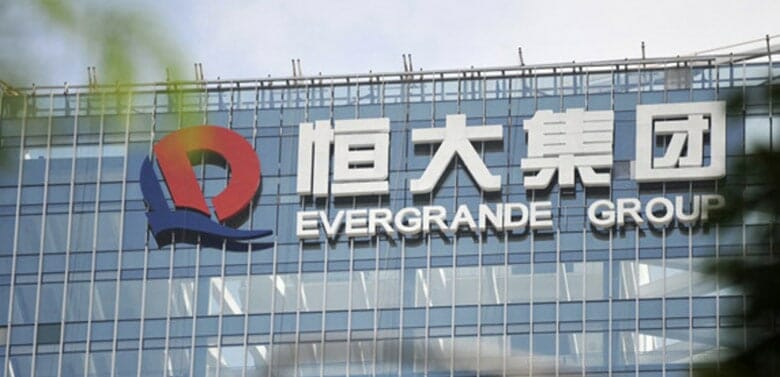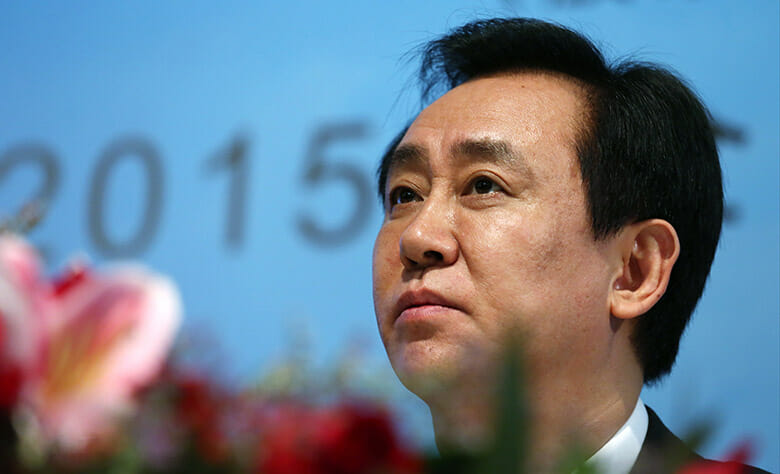
Evergrande postponed a meeting with creditors to a later date after selling a stake in its EV division.
China Evergrande Group said on Wednesday that it is facing a probe by China’s securities watchdog on alleged violations of rules regarding disclosure of financial information, with the embattled property developer later that day saying it will delay a scheduled restructuring meeting with creditors.
Evergrande’s primary onshore unit, Hengda Real Estate Group, said the China Securities Regulatory Commission (CSRC) has filed a case against it, saying that it is suspected of violating laws and regulations regarding information disclosure under the Securities Law of the People’s Republic of China and other regulations.
“The company will actively cooperate with the investigation by the China Securities Regulatory Commission and strictly perform its information disclosure obligations in accordance with relevant requirements,” Hengda said in the statement.
The Shenzhen-listed company was criticised in April by both the Shanghai and Shenzhen exchanges for not following listing requirements, with Evergrande disclosing late last month that Hengda was involved in 1,875 pending litigation cases of RMB 30 million or more each, with the pending cases amounting to more than RMB 429 billion as of 30 June.
Hidden Debt
In addition to its litigation liabilities, Hengda had overdue commercial bills of around RMB 245 billion at the end of the first half, Evergrande said in its 28 July statement, with trading in the company’s shares having been suspended since 21 March.

Evergrande boss Xu Jiayin (Getty Images)
On Monday, Chinese government records were updated to show that multiple Evergrande executives subject to court-ordered restrictions on their use of air travel, high-end hotels or other luxury services after authorities judged them to be dishonest debtors who had failed to make good faith efforts to resolve debts, according to an account in mainland news site Guandian.com.
Insufficient provision of financial information has been a recurring theme with Evergrande after the company rated as China’s largest developer by sales in 2020, slipped into default in late 2021.
PricewaterhouseCoopers stepped down as Evergrande’s auditor in January of this year, citing its inability to obtain information from its client regarding “significant matters” required for the long overdue 2021 audit.
The auditor exit followed Fitch Ratings and Moody’s both withdrawing their coverage of the company last year after Evergrande and its subsidiaries decided to stop participating in the rating process, leaving the credit rating agencies with inadequate information to maintain the ratings.
When Evergrande released its overdue financial statements for 2021 and 2022 last month, the company revealed it had lost RMB 476 billion ($66.4 billion) in 2021, followed by a net loss of RMB 105.9 billion last year.
In a note published on Wednesday, analysts at S&P Global Ratings highlighted Evergrande’s potential “hidden debt” as a key factor in its distress.
“Its previous auditor, PwC, cited the possible existence of off-balance sheet wealth management products and other off-balance sheet liabilities,” the credit agency stated.
Meetings Pushed Back
In the late Wednesday announcement by Evergrande’s Hong Kong-listed entity, the company said it will delay its meeting with its offshore bondholders by 10 days to give lenders more time to assess the impact of a proposed stake sale in its China Evergrande New Energy Vehicle Group (Evergrande NEV) unit worth $500 million, which had been announced on Monday.
With Evergrande struggling to come to terms with $22.7 billion in offshore debts, which make it the world’s most indebted developer the company now proposes to meet with offshore bondholders to vote on its proposed restructuring scheme on 28 August, instead of 22 to 23 August.
After the restructuring proposal was first put forth in March, the firm said that Hong Kong courts are still set to review the scheme on 5 and 6 September, as previously scheduled, with hearings in the Cayman Islands also still on track for 1 September.
Under the proposed restructuring, relevant creditors will be given the option to replace their existing bonds with new notes maturing in 10 to 12 years; or a combination of new notes maturing in five to nine years and instruments tied to the shares of either the company itself, its Evergrande Property Services unit, or Evergrande NEV.
Evergrande said that postponing the scheme meeting would give creditors time to review its proposed sale of more than 6.1 billion new shares in its electric car unit to NWTN. Should the deal go through, Evergrande will see its interest in Evergrande NEV diluted to 46.86 percent from 58.54 percent currently.
Leave a Reply